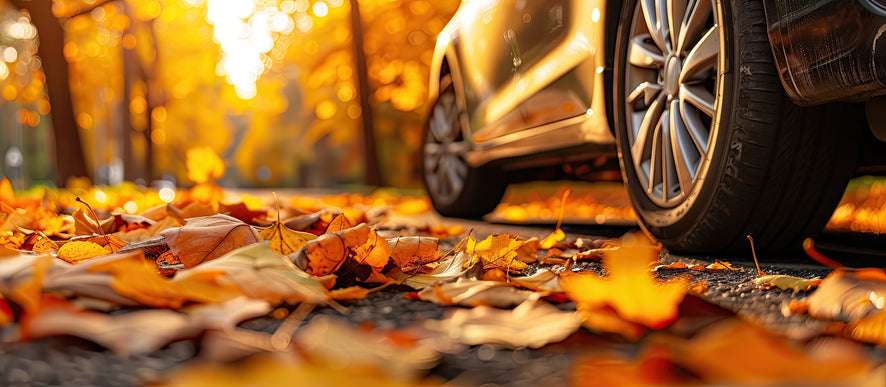
Summer tires in winter
If you buy a new car, it is usually equipped with summer tires. Under normal circumstances, this is the safest and most comfortable tire. In this blog we discuss the question of whether it is wise to also drive with summer tires in winter.
Difference between summer tires and winter tires
On a normal road surface, summer tires perform better than winter tires. They then have more grip, a shorter braking distance and wear less hard. They also produce less noise and drive more economically at high speeds. However, on a wet, cold, slippery and snowy road surface you are better off with a winter tire, because it offers more grip at temperatures below 7 degrees Celsius.
Is it wise to continue driving with summer tires in winter?
If it is dry and not raining too hard, you can also use summer tires in the Netherlands in winter. However, you do have to adjust your speed and keep a little more distance, because a summer tire has a longer braking distance on a wet or cold road surface. Also keep in mind that summer tires wear harder at lower temperatures. They lose their elasticity and tear more quickly, which increases the chance of an accident.
Driving in the snow with summer tires
Driving with summer tires in the snow is dangerous. At lower temperatures, icy conditions and snow, you need flexible tires for more grip on the road. Because the rubber of summer tires is hard, it makes insufficient contact with the road in winter conditions. The profile of summer tires is also not deep enough to remove snow. The braking distance of summer tires on a snow-covered road surface is almost 30 meters longer than that of winter tires. The advice is not to drive on the road with summer tires in snow or icy conditions.
Driving with summer tires abroad in winter
In the Netherlands, as a driver you are not obliged to use winter tires. This also applies to Belgium, the United Kingdom, Denmark and Poland, although in these countries it is recommended to use winter tires in snow and icy conditions. In Germany, Luxembourg, Switzerland and Norway you must drive with winter tires in winter conditions. In Finland, Sweden and Austria you are obliged to drive on winter tires during the winter period. This also applies in Italy, Slovenia and in the French mountain areas (Alps, Massif Central, Jura, Pyrenees, Vosges and Corsica), unless you have a properly fitting snow chain in the car. In the rest of France, winter tires are not mandatory, but they are recommended in snow and icy conditions. In countries such as Germany, Slovenia, Sweden and Austria you risk a fine if you drive with summer tires in winter conditions.
When to change summer tires?
The most commonly used rule of thumb is to exchange your summer tires for winter tires when the clocks are changed to winter time: so at the end of October. However, now that autumn and winter in the Netherlands seem to be getting milder, you can also choose to wait until the temperature drops below 7 degrees Celsius before changing. In that case, keep a close eye on the weather forecast. And if you do not change the tires yourself, make an appointment at the garage in time.
Alternative: All-season tire
With the all-season tire, also called all-season tire, you could theoretically drive safely during any season. This means you don't have to change your car tires. Whichever way you look at it: the all-season tire is a compromise. In the summer, for example, it performs less well than a summer tire. However, under winter conditions an all-season tire performs better than a summer tire. Although in that case you are still best off with a specialized winter tire. An all-season tire has a longer braking distance on a snowy or slippery road surface and less traction if you want to drive up a slope. Do you have an all-season tire that has a 3PMSF marking? Then this tire performs just as well as a winter tire.

More about car tires
The recommended air pressure for a summer, all-season and winter tire is the same. Want to inflate your car tire yourself? You can read more about it on our blog page. You will also find articles here about the Schrader valve and the importance of correct tire pressure.
Read more blogs

Runflat banden zijn een slimme oplossing voor autobezitters die meer veiligheid en...
Lees meer
It can happen to any motorist: you get into your car, drive...
Lees meer
A flat tire is very annoying, especially if it is caused by...
Lees meer